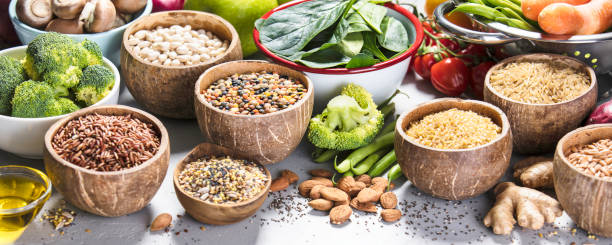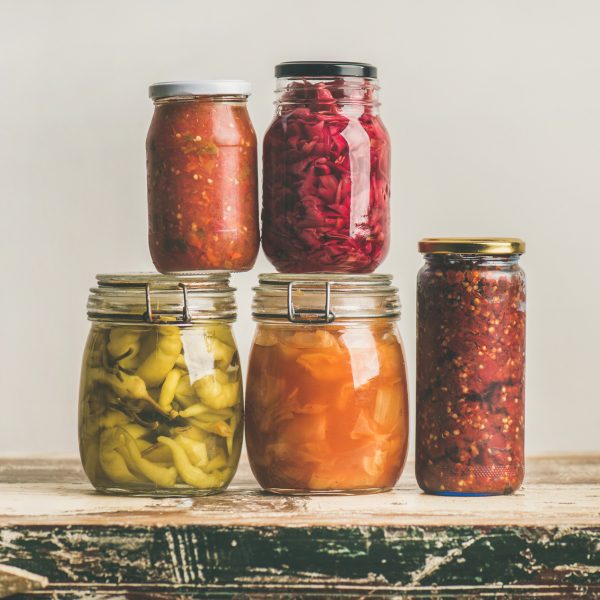The Top 4 Things to Know About Probiotics
By this point you’re probably well aware of probiotics. They’re the microscopic organisms that live within your gut and digestive tract that help you reap the benefits of the healthy things you put into your body and help protect you from the less-than healthy things you put in your body as well.
If you are considering adding probiotics to your diet, there are probably some things you’ll want to know about them first.
Here are the top four things to know about probiotics:
There are a ton of sources:
If you want to take the blunge and do the work necessary to improving your gut’s microbiome, there are a ton of ways to do it. If you aren’t a fan of downing a cocktail of pills each morning (honestly who is?), you can add probiotics to your diet in a number of creative and delicious ways. Here is a list of some of the most popular foods that are filled with live cultures:
- sauerkraut
- miso
- kimchi
- kefir
- tempeh
- kombucha
- yogurt
- pickled cucumber (or other vegetables)
- nattō
- dark chocolate
- miso soup
- sourdough
- microalgae
- cottage cheese
- kvass
- brine
- types of cheese
- buttermilk
One thing to keep in mind is how this food is stored and prepared. Too cold and it might kill the healthy critters living inside. Too hot, and it might result in the same thing. These microbes can help bolster your immune system, your waistline, even your mood! But you have to treat them delicately, otherwise you’ll just be downing foods with billions of dead microbes. Sounds kinda nasty if you think about about too long!
They bolster your microbial flora:
Try to think of your gut as a rainforest. Eco diversity is crucially important to the health and sustainability of every ecosystem, and the inside of your body is no different. The microbiome is the genetic material of all microbes – bacteria, fungi, protozoa, and viruses – that live on and inside your body. The bacteria that improve your microbiome can go a long way to improving the health of your body. There are a ton of ways that diverse microbiome help you:
- Supports digestion: a healthy microbiomes is made up of a ton of bacteria that help you break down and digest the food that you are eating. While your saliva and stomach acid do a lot of the work, the bacteria also do their part and have been doing so for millions of years. We evolved alongside with our microbiome and without it, we wouldn’t be able to be as healthy as possible.
- Supports a healthy immune system: a healthy gut acts as the first line of defense against ingested pathogens. It does this by competing against pathogens for nutrients and secreting antimicrobial compounds. These actions support your immune system by making your body harder to colonize.
- Supports bone health: calcium is one of the nutrients essential for bone health, and a diverse group of bacteria found in a healthy gut microbiome may help to increase the absorption of calcium. Therefore, a healthy gut microbiome may help to support bone health.
- Helps you achieve a healthy weight: There are obviously a lot of things that contribute achieving and maintaining a healthy weight, and one aspect of that is maintaining a healthy and diverse microbiome. A healthy microbiome is characterized by a balance of both good and bad microbes. Studies have linked out-of-balance or non-diverse microbiomes with obesity. Conversely, having a balanced microbiome has been linked to being at a healthy weight.
- Supports brain health: The saying “Thinking with your gut,” is more true than you even know. The gut-brain-axis is how our but speaks to our brain and tells it wha tit wants. This communication is made sharper when the gut is performing at tip-top shape. Certain microbes living in a healthy gut release neurotransmitters, which allows them to impact your mood and cognition. On top of that, if you help fuel your microbiome with prebiotics (healthy organic foods that help microbes flourish and grow), they will literally start telling your brain to crave it. That means more fruits and veggies and less sweets and trans fats.
70 percent of your immune system is found in your gut:
It’s easy to think of your body as a total unit that shares the responsibility of keeping you safe and healthy, but there is no doubt that certain parts of the body are tasked with certain jobs. One very important job is killing dangerous germs and viruses that enter your body through the air, through food, through everything. The major wall of defense that your body has lives within your gut, and the healthier your microbiome is, the better the chances that you will be able to fend of illness. Probiotics can help bolster your while blood cells and help kill pathogens upon entry into your body. That’s why it’s vitally important to keep a health microbiome.
Probiotics impact more than just your gut:
It’s true, we’ve been talking quite a bit about your gut, but there is actually a very long list of things good bacteria can have a positive impact on. They can positively influence your nasal sinus, your respiratory health, you immune system, your gastrointestinal health, your ability to absorb all the nutrients the food you eat has to offer, your digestive comfort such as gas and bloating, your vaginal and urogenital health, your weight management, your skin, your hair, your mood, and more!
After all this it should be clear to you that the health of your microbiome has a massive ripple effect on the rest of your body. You can help improve your day-to-day health and happiness by improving your microbiome and ensure that your health lasts for years to come. For something so easy, it’s incredible that it has such a huge impact on your body’s health.
Now that you know how important improving your microbiome is, it’s time to head to your nearby health and wellness store and find what foods and supplements are right for you.
Good luck!




